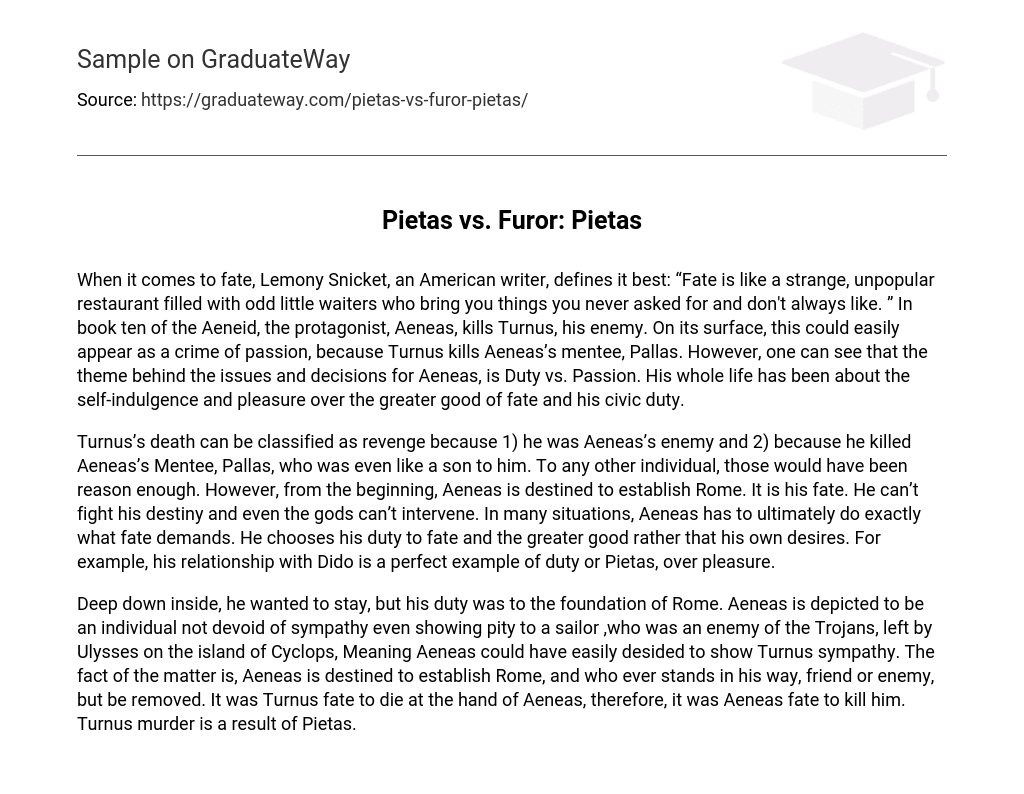Lemony Snicket, an American writer, provides a defining description of fate: “Fate is like a strange, unpopular restaurant filled with odd little waiters who bring you things you never asked for and don’t always like.” In the tenth book of the Aeneid, Aeneas, the protagonist, takes the life of his enemy, Turnus. At first glance, this act may seem like a crime committed out of passion, as Turnus had killed Pallas, Aeneas’s mentee. However, the underlying theme behind Aeneas’s choices and actions is the conflict between Duty and Passion. Throughout his entire life, Aeneas has prioritized self-indulgence and personal pleasure over fulfilling his civic duty and following the path laid out for him by fate.
Turnus’s death can be considered as an act of revenge due to two reasons – he was Aeneas’s enemy and he also killed Pallas, who held a significant place in Aeneas’s heart akin to a son. These reasons alone would have been enough for anyone seeking vengeance. However, it is important to note that Aeneas is destined to establish Rome since the very beginning. His fate is predetermined and even the gods are unable to interfere. In various circumstances, Aeneas is compelled to fulfill exactly what his fate demands of him. He prioritizes his duty towards fate and the greater good over his own personal desires. One notable instance is his relationship with Dido, where he showcases the concept of duty or Pietas, choosing it over immediate pleasure.
Although Aeneas felt a desire to stay, his duty lay with the creation of Rome. Despite this, he demonstrated compassion towards a sailor – an enemy of the Trojans – who had been deserted by Ulysses on Cyclops Island. This illustrates that Aeneas could have chosen to exhibit empathy towards Turnus as well. Nonetheless, it is predetermined for Aeneas to establish Rome, and anyone opposing him, regardless of friendship or enmity, must be eliminated. Turnus was destined to meet his demise at the hands of Aeneas, thus making it also Aeneas’ fate to kill him. The slaying of Turnus is a consequence of Pietas.





